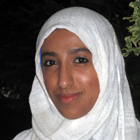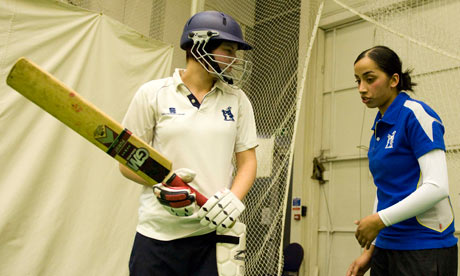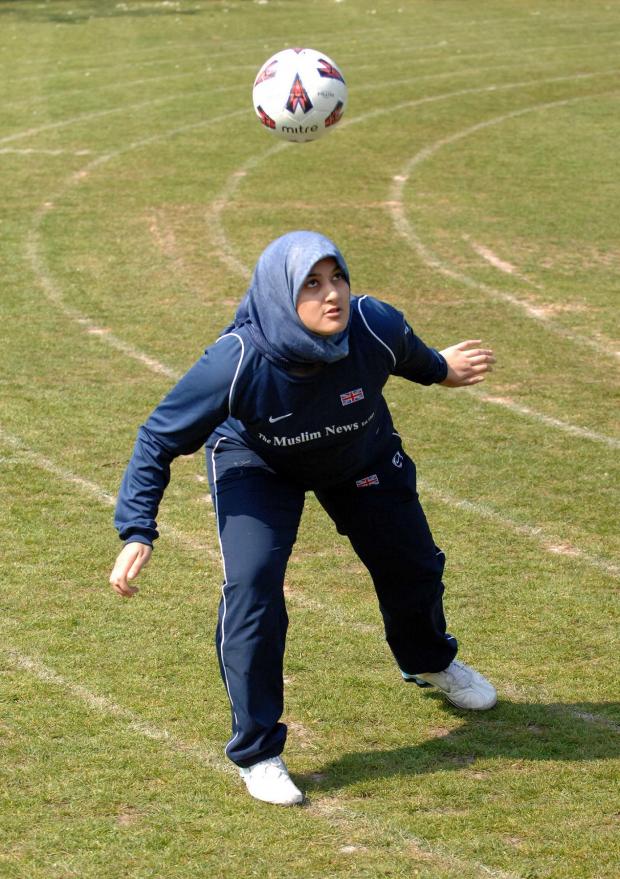By Shireen Ahmed
"Hands Up... SCREAM," he shouted. "HANDS UP! Faster! Faster!"
Konga blew his whistle and I jumped into fight stance, my hands protecting my face and head, trying to emulate his agility. I was panting and tried to keep up with the pace and the demands of the instructor. I faced Jihad, my 13-year-old daughter. Beads of sweat covered her forehead and her eyes were dark and intense.
A few weeks ago, I committed to attending this self-defence session offered by Konga Fitness at Battle Arts Academy in Mississauga, Ontario, located just west of Toronto. It is one of the 20 self-defence workshops and sessions being offered for women in the last two months. After an alarming number of attacks on identifiable Muslims occurred in the Greater Toronto Area following the tragedies in Paris and San Bernardino, a few
community members and
organizations mobilized to offer workshops and self-defence classes.
Islamophobia has reared its ugly head in Canada and a lot of women in the Muslim community were feeling particularly vulnerable, angry, frustrated and, yes, scared—
I certainly was.
Our instructor, Khaled Konga, yelled directions for our body positioning and sequences. We continued for another three minutes. When he was satisfied with our movements and our responses to his commands, we were permitted to take a water break.
"Confidence. It is about confidence" Konga reiterated as we gulped, "You must be confident. You must be aware. You must use your voice!" His Egyptian accent dotted his directions. "You are strong. I am not going to teach you superman kicks and fancy punches. I am teaching you the basics so you can be safe. This is reality and function."
Above all, he reminded us, screaming is imperative. I look over and see my child nodding in agreement. I was grateful that she was absorbing all of this. Some of the other participants were smiling and chatting intermittently but we both stayed in battle mode. This was important. We both knew it.
This session had about 30 attendees. All but two were women of colour. The majority of the women in the group were wearing the hijab. When I first brought up personal safety in the wake of an increase of attacks on Muslims, Jihad confessed she was more concerned for me since I cover and she does not. I realized that the best thing was for both of us to attend together.
I am an identifiable Muslim woman. I wear a hijab. I have worn it for almost 20 years—by choice. That my decision to wear a headscarf could be a trigger for ignorant people to attack me is unsettling, to say the least. My daughter does not choose to cover. But she identifies as a Muslim and her name is unmistakably and unapologetically Arabic. I trust her but I feel burdened by an anxiety that she could be targeted because of her beliefs, her skin colour and even her name. Most of the victims of recent attacks
have been young women. And some
close to my home. As a result, some have decided to
not go out at night as often. I don't blame them. But I opted for physical preparedness in case my daughter or I were ever in that situation.
My friend Noor, who happens to be a black belt in karate and also a sexual assault prevention instructor, shared the information about Konga's free sessions, and I immediately registered for two spots. Jihad initially groaned and insisted that the wrestling sessions in our living room with her dad and three brothers were sufficient. But I wouldn't have any of it, fearing that Islamophobes and misogynists could unleash their ignorant rage on her. She would come to this workshop; if only for giving me and her father some peace of mind.
I might have reconsidered when I saw how eager she would be to partner with me and attack me on Konga's cues. She was fierce and determined. "At least this attitude you giveme can empower you in something," I muttered to her. She rolled her eyes but we continued the drill.
In between bouts of emphasizing the importance of spatial awareness and quick footwork, Konga reminded us that our main purpose was, in fact, not to maim aggressors but to get to safety. Our sharp responses of an elbow or a kick might only irritate or confuse a person attacking us. But it would give us that opportunity to get the hell out of there and get help.
Jihad remained rapt with attention. She is used to physical demands of an athlete but this training is about awareness and smart decisions under pressure. We are told that ultimately we should practice these maneuvers until they become second nature. Constant awareness of the spaces we are in is so important for all women—Muslim, or not, and for all ages.
Jihad was the youngest one in the session but victims of such attacks can
be quite young. I think about this a lot. In the United States, one such victim was a girl in sixth grade and beaten by three schoolboys who shouted "ISIS" at her as they punched her.
I want my daughter to be able to defend herself, and I will not always be there. Those thoughts weigh heavily on me. Young Muslims, who grew up on timbits and homogenized milk in Canada—the only home they have ever known—worry about their safety. Those young female Muslims cheer for the same hockey teams, volunteer at community hospitals and inhale poutine like any other teenager from Canada. But they worry about being targets of racist violence, which many in this country will never experience.
"Mama, focus!" she snapped and then promptly pushed against my arms. I shook myself to attention and straightened my posture. The I re-engaged with her. She needs to see me learning and fighting. The information we received was mentally exhausting and physically demanding. My arms hurt and my calves are sore but I feel I need to continue.

In every class, workshop or seminar I have ever attended, the instructors all underline how confidence is essential. A two-hour session is not enough to master all martial arts moves, but consistent training can certainly help. In one of our many conversations, Noor told me that, "Participants having a false sense of security is always a concern, but you want to ensure women understand martial arts is about having positive headspace." She adds that a sense of
sisterhood is also strengthened by these initiatives. This is also an important lesson for my daughter to learn. I wish that personal and community development didn't have to be in the context of protection from violence, but it is her reality right now.
Gendered Islamophobia is rooted in racism and misogyny. It is a constant in the lives of women. Misogyny has lurked in the true north strong and free for a long time. It is not something new to Canada. Our government just released an inquiry about over 1,200
missing and murdered Indigenous women.
With powerful Western figures like Republican presidential candidate
Donald Trump and former Canadian prime minister
Stephen Harper having spewed hateful vitriol, the increase in
anti-Muslim sentiment is notable. But we go forward. We practice that jab, that block, that kick to an attacker's groin, again and again.
Konga wraps up the session lightheartedly and says: "This is just a small key. A key you can use to open the door and get out of danger."
We grabbed a coffee with Noor after the workshop to decompress and discuss the afternoon. I didn't want Jihad to feel burdened with a reality that seems grim. But she ordered two pieces of cheesecake and was her normal self.
Noor hasn't been attacked before, and I certainly hope both Jihad and I are also fortunate enough to never have to defend ourselves from a physical attack. Safety is not a privilege, it is a right. But sometimes you have to fight for it—you have to burst through the door to a safe space. And now at least Jihad has a key.
All photos courtesy Konga Fitness
Source: https://sports.vice.com/ca/article/the-key-to-fighting-gendered-islamophobia


















